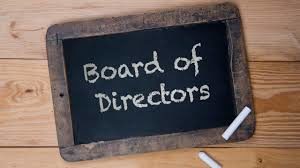Changes in the Balance of Power: The Board Versus CEO
 There is no doubt that corporate boards operate under greater scrutiny. The trend is clearly to hold boards and individual members accountable. But this is not the result of government prosecution; rather, this trend reflects increased regulation and changes in investor and shareholder efforts to monitor corporate boards and CEOs. As corporate boards assume greater responsibility for supervision and monitoring of company activities, they have reduced the power of the CEO.
There is no doubt that corporate boards operate under greater scrutiny. The trend is clearly to hold boards and individual members accountable. But this is not the result of government prosecution; rather, this trend reflects increased regulation and changes in investor and shareholder efforts to monitor corporate boards and CEOs. As corporate boards assume greater responsibility for supervision and monitoring of company activities, they have reduced the power of the CEO.
Over the last twenty years, Sarbanes-Oxley and Dodd-Frank imposed numerous reforms and changes to corporate governance. As a result, we have seen proxy services and institutional investors increase their influence over corporate activities. Institutional investors own almost 75 percent of the stock of public companies in the United States. These two forces, in particular, have caused corporate boards to reign in CEOs and assume a greater role in corporate governance.
Corporate boards are playing a greater role in the oversight and management of company activities. This comes with significant risks. Corporate boards are requesting more information and reports from senior management and attempting to be better informed and make better decisions.
The key principle underlying improved board performance and responsibility is independence. Corporate boards are no longer under the domination or control of powerful CEOs; instead, corporate boards are developing into independent and resourceful leaders.
The days of a CEO serving as the Chairman/Chairwoman of the Board are less frequent. In the 1990s, approximately 80 percent of public companies had a single person serving as Chairman/Chairwoman and now the number is down to around 40 percent. The percentage of independent directors has been rising, and now exceeds 80 percent of all board seats.
Today, CEOs are expected to view the board not as an adversary but as a resource. An effective board can add an important guide for decision-making and improve the overall performance of a company.
As the Spiderman saying goes – “with great power, comes great responsibility.” And so it is for corporate boards. Knowing this, corporate boards have been increasing the number of hours dedicated to their work. The average director devotes nearly 300 hours a year to board activities. I expect that number will increase. Given the regulatory and litigation risks, board members have to dedicate even more time and effort to ensure proper performance of their duties.
If there is one area where board members have to devote more time (aside from ethics and compliance) it is overall company strategy. Too often, board members defer to the CEO in this area neither questioning nor testing of CEO assumptions and proposals. CEOs and board need to develop joint strategic visions together in a collaborative process. A CEO cannot expect the board to operate as a rubber stamp for CEO tactical decisions.
One other area where corporate boards are devoting more attention is the makeup of the board. No longer is the boardroom a place for company fiends or associates of the CEO to serve. Each board seat is an opportunity to appoint a professional who has unique experience and talent that will enhance overall board performance. It is  important to view the complement of board members through a prism of talent, diversity, and performance. A diverse board ensures a range of perspective and insight and improves overall performance.
important to view the complement of board members through a prism of talent, diversity, and performance. A diverse board ensures a range of perspective and insight and improves overall performance.
Corporate boards are also focusing on CEO succession. This is an important new area of responsibility that facilitates a smooth transition from one CEO to another. This is a direct result of SEC regulations enacted in 2009 that ensured that shareholders were afforded increased influence over succession plans. Prior to these regulations, the succession process was directed and controlled by the existing CEO. That has definitely changed and more power has been given to boards to oversee this process.















2 Responses
[…] Read Full Article: Changes in the Balance of Power: The Board Versus CEO – Corruption, Crime & Compliance […]
[…] Read Full Article: Changes in the Balance of Power: The Board Versus CEO – Corruption, Crime & Compliance […]